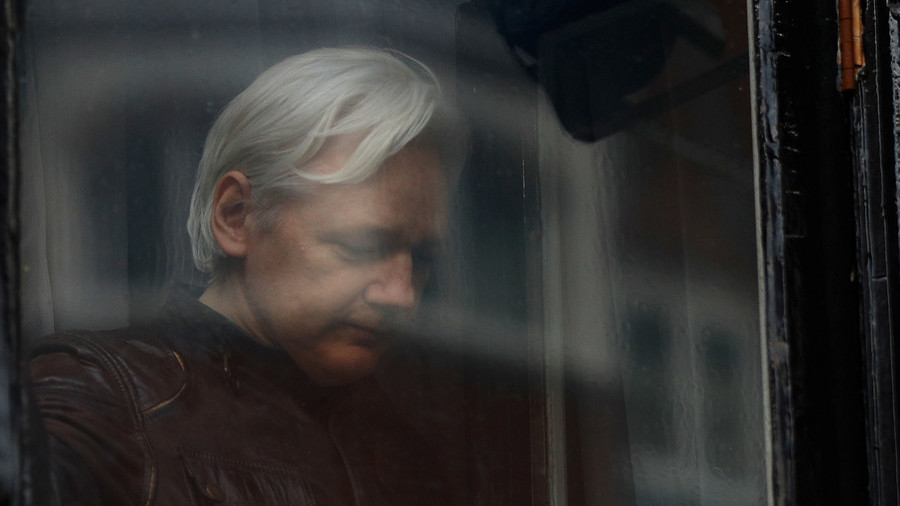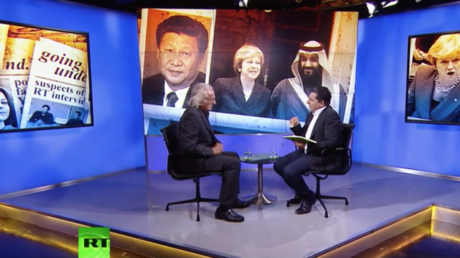Ecuador gets UN praise for ‘freedom of expression’ as Assange remains gagged in embassy limbo

A UN official praised Ecuadorian President Lenin Moreno for his treatment of journalists despite the fact that the leader is said to be preparing to hand over WikiLeaks’ Julian Assange to the governments persecuting him.
UN Special Rapporteur on freedom of opinion and expression David Kaye commended Ecuador and Moreno for supposedly promoting freedom of speech – the same Moreno that recently cut off communications to fugitive whistleblower Julian Assange and has been mulling handing him over to the UK and the US to be tried as a spy.
Assange, the co-founder of WikiLeaks, was granted political asylum by Moreno’s predecessor Rafael Correa in 2012 and became an Ecuadorian citizen in December 2017. In order to hand Assange over, Moreno would have to strip him of that citizenship first, as Ecuador’s extradition treaty with the UK precludes turning over its own citizens.
Moreno’s government invited Kaye to meet Ecuadorian authorities, journalists, academics, and civil society groups during a recent visit. The UN official was briefed on “ongoing legal and policy changes” instituted by Moreno, who has taken a hard right turn from the government of his predecessor Correa, most notably in resuming military cooperation with the US.
Kaye’s fulsome praise for the Moreno government rang especially hollow where he discussed whistleblowing and the internet: “He also urged strong promotion for independent journalism and the safety of journalists […] including by developing strong whistleblower protections for both public officials and private employees; and several steps to improve the rights people in Ecuador enjoy online.”
Assange is famous for developing WikiLeaks as a secure, anonymous platform for whistleblowers. His supporters were outraged when Moreno revoked his internet access earlier this year, leaving him completely cut off from the outside world. Moreno has maintained that he will respect Assange’s asylum as long as the journalist doesn’t engage in “political activity,” but he remains incommunicado despite this promise.
By inviting Kaye to visit Ecuador, Moreno may hope to preempt some of the international outrage that would result from sending an Ecuadorian citizen off to possibly spend decades in prison for doing journalistic work. Assange, after all, merely published information that he was given by whistleblowers, as journalists have for hundreds of years. Such acts are protected by US and UK law. But since some of that information concerned the shady conduct of American diplomats, military, and spies, Washington treats Assange as an enemy of the state. And once the UK has custody of Assange, it is assumed he will be transferred to the US.
Assange is not the only Ecuadorian who Moreno has betrayed. Correa himself, who gave Moreno his blessing as his successor, was forced to flee to Belgium earlier this year after what he claims was a politically motivated prosecution for the alleged 2012 kidnapping of a political opponent. Correa turned on his protege after Moreno proposed a constitutional referendum that would have barred Correa from running for office again, and Moreno – whom he now calls a “wolf in sheep’s clothing” – has since overturned many of his predecessor’s reforms.


0 Comments:
Post a Comment
Subscribe to Post Comments [Atom]
<< Home